Garden Planter Molds Manufacturers
Garden planter molds are tailored to produce plastic flower pots, planters, and garden containers used in landscaping, horticulture, and home gardening. These molds must deliver visually appealing and durable products that can withstand outdoor conditions, including UV exposure, temperature changes, and moisture.
From a structural perspective, the mold design emphasizes uniform wall thickness, drainage hole placement, and base stability to ensure proper plant support and water flow. For decorative planters, surface detailing is often integrated directly into the mold cavity to replicate textures such as stone, ceramic, or wood grain—without requiring secondary processing.
Plastic materials like polypropylene (PP) and high-density polyethylene (HDPE) are commonly used and selected for their durability and ease of molding. Depending on the intended market—commercial growers or retail consumers—the mold may be configured for standard shapes (round, square, tapered) or more ornamental designs.
These molds also often incorporate interchangeable cores and inserts to produce different planter sizes or styles using the same mold base, increasing cost-efficiency for manufacturers. Efficient ejection systems and optimized cooling channels help maintain short cycle times even for complex or large designs.
-
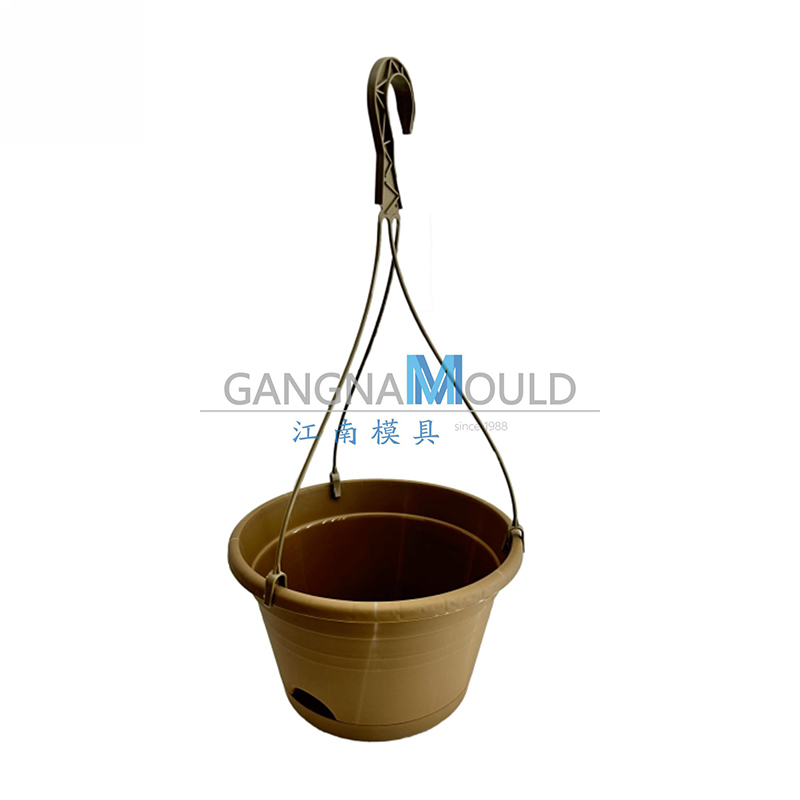
JN-081 Plastic hanging flower pot mold
Contact Us -
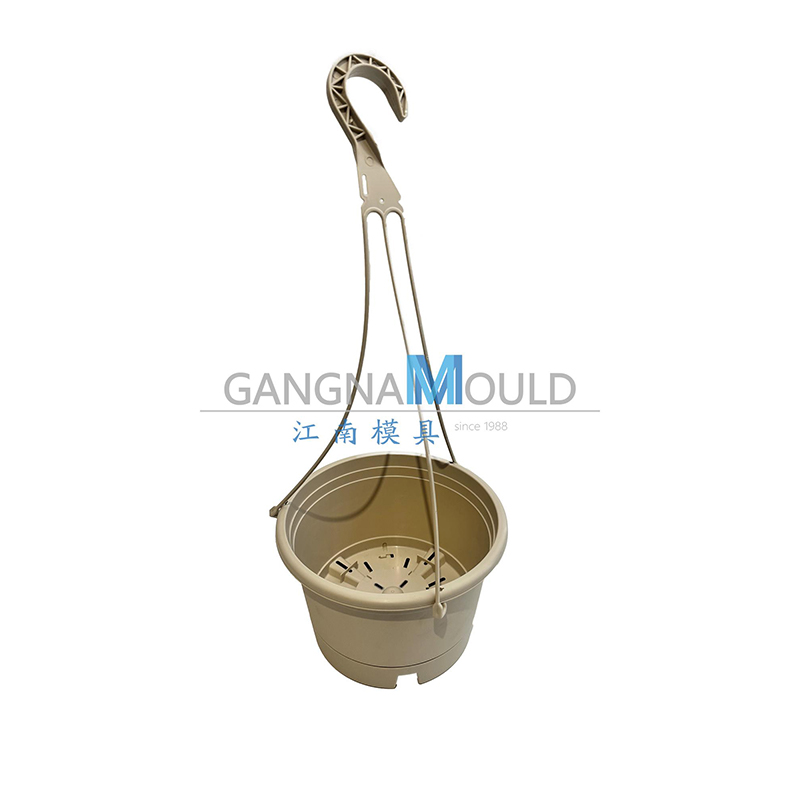
JN-082 Plastic hanging flower pot mold
Contact Us -
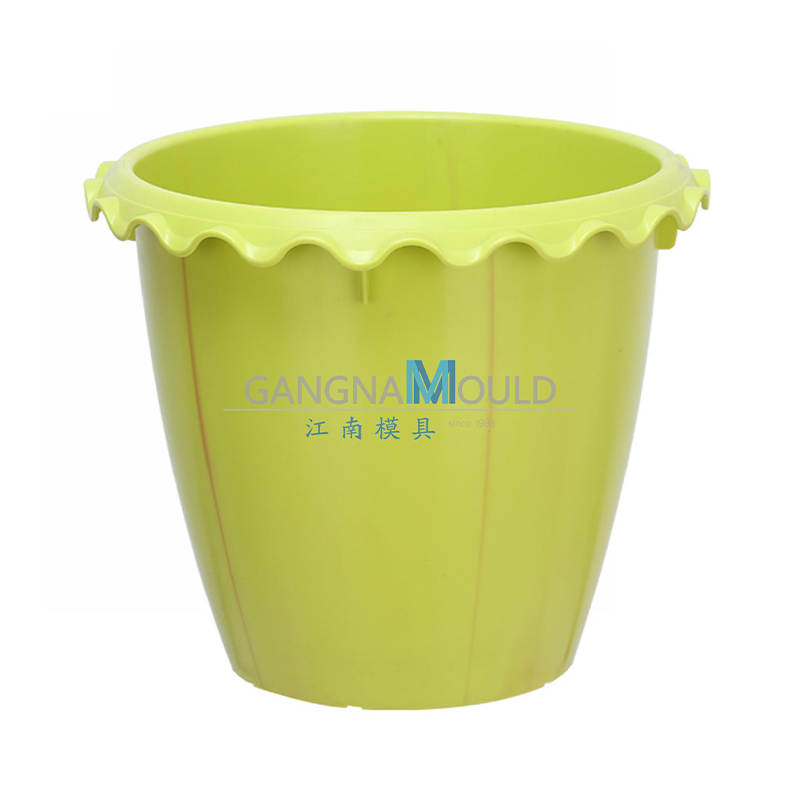
JN-084 Injection molding garden pot mold
Contact Us -
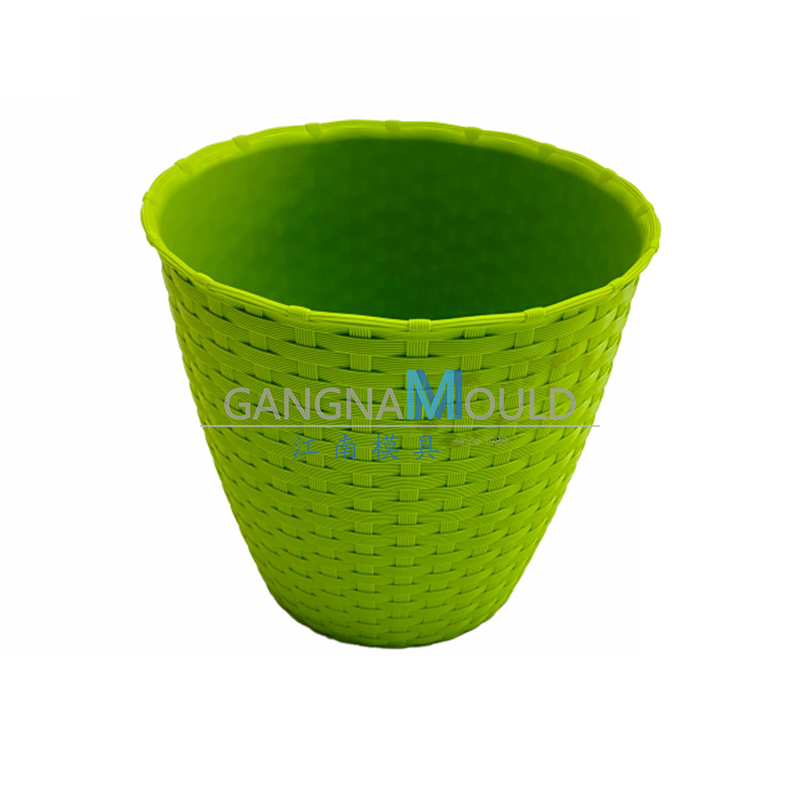
JN-087 Injection molding garden pot mold
Contact Us -
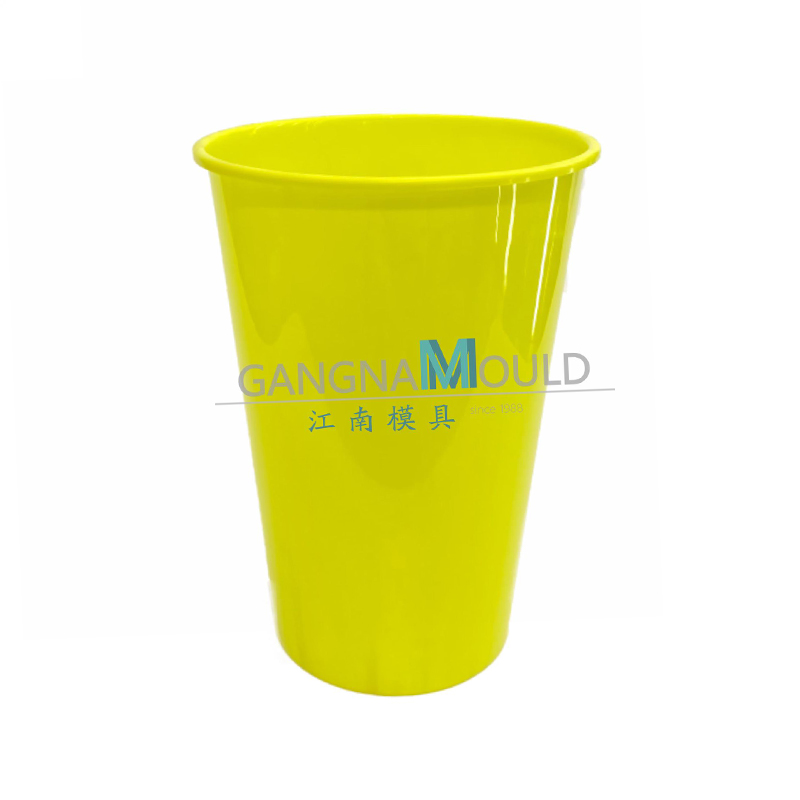
JN-086 Injection molding garden pot mold
Contact Us -
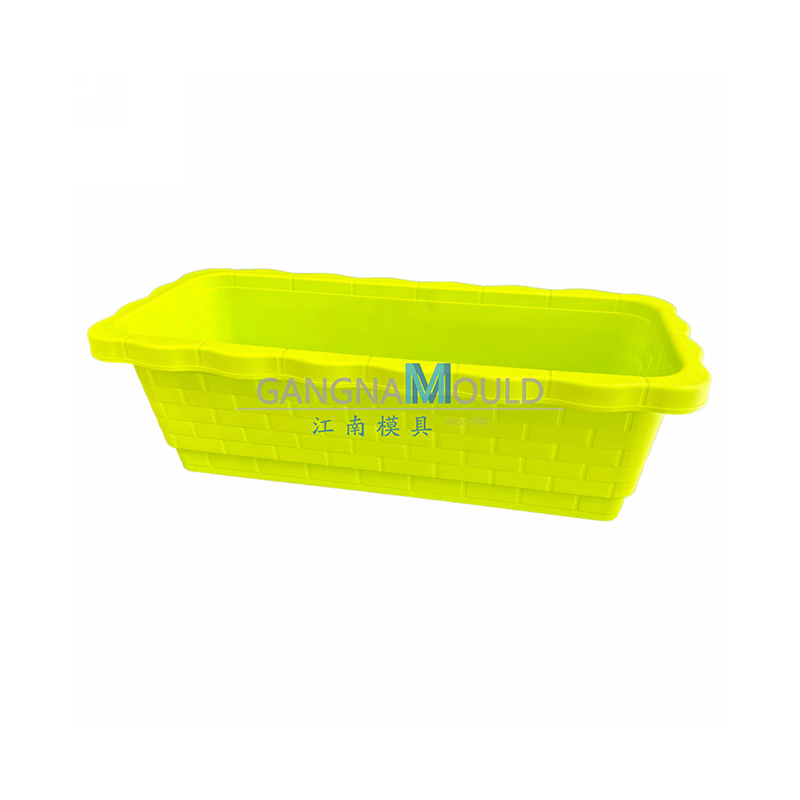
JN-088 Rectangular plastic flower pot mold
Contact Us -
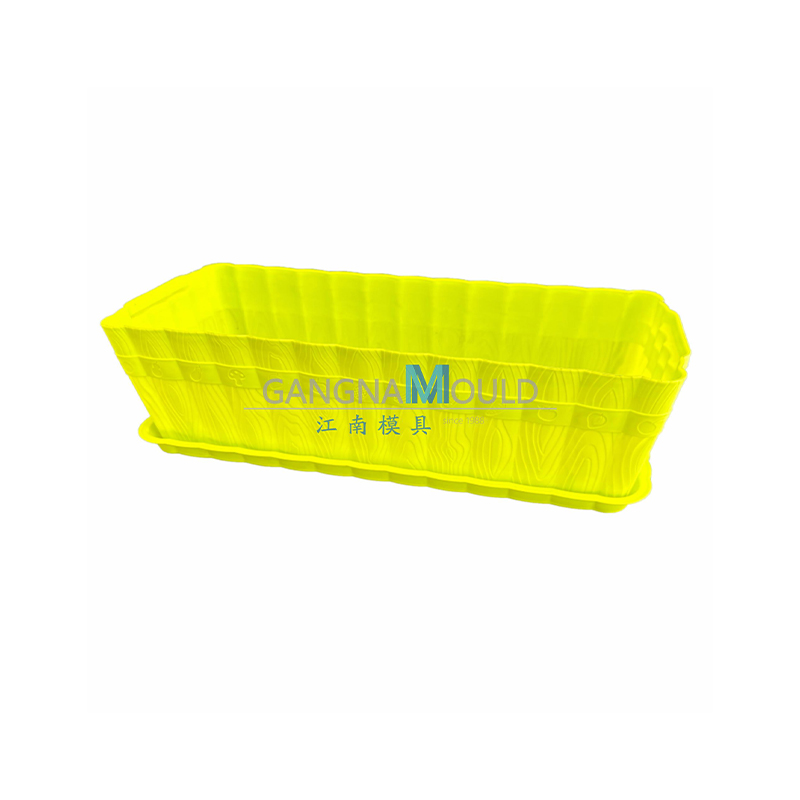
JN-089 Rectangular plastic flower pot mold
Contact Us -
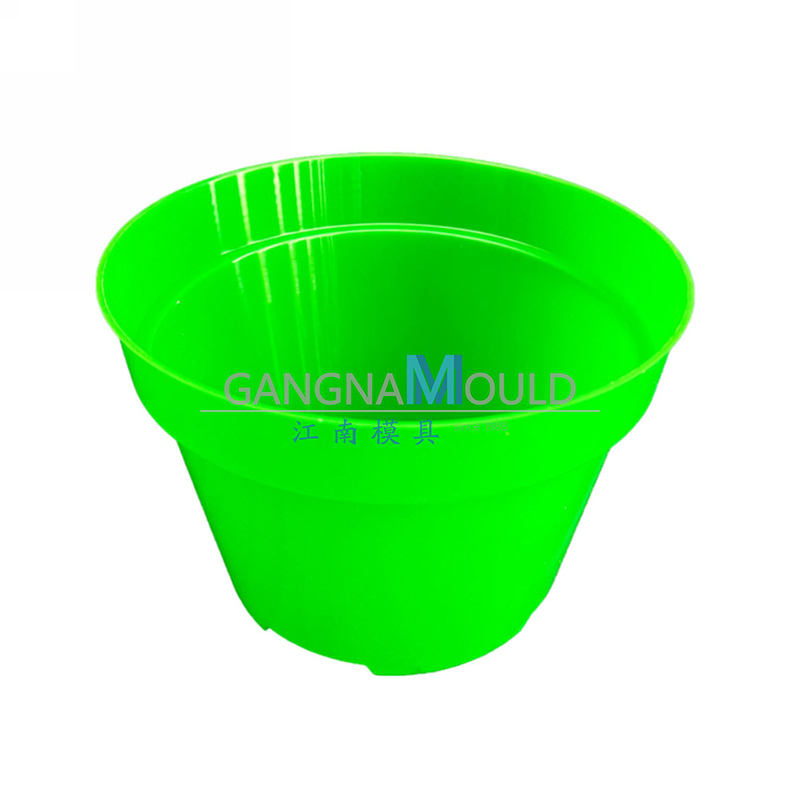
JN-083 Injection molding garden pot mold
Contact Us -
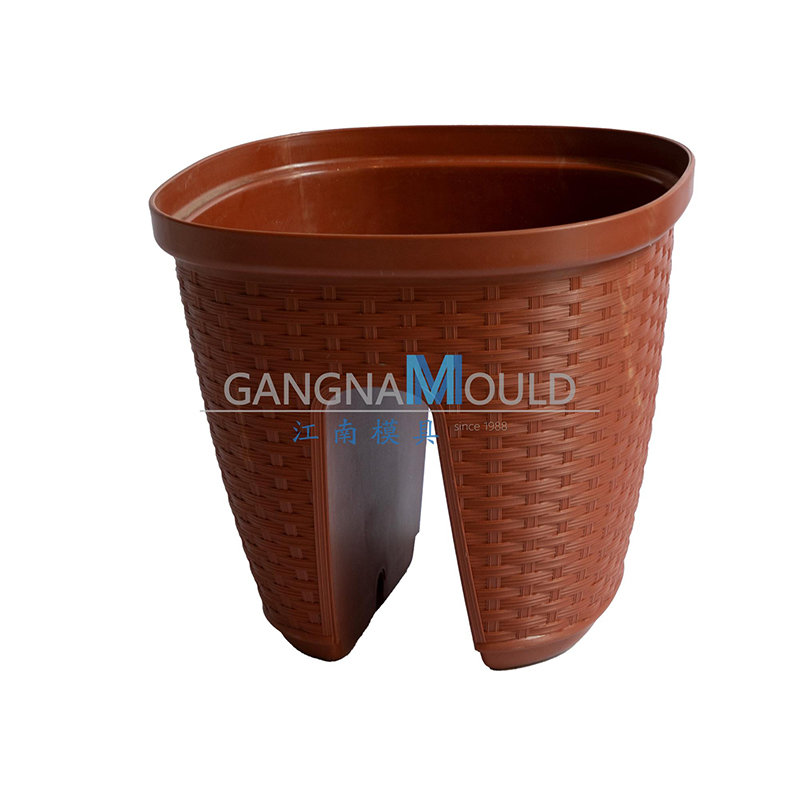
JN-085 Injection molding garden pot mold
Contact Us -
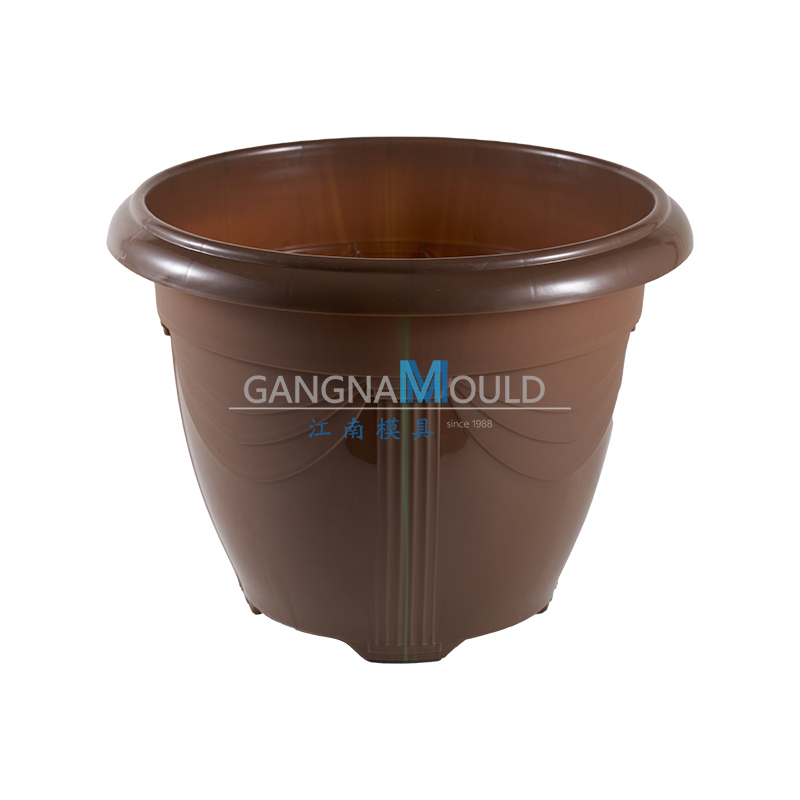
JN-631 Injection molding garden pot mold
Contact Us -
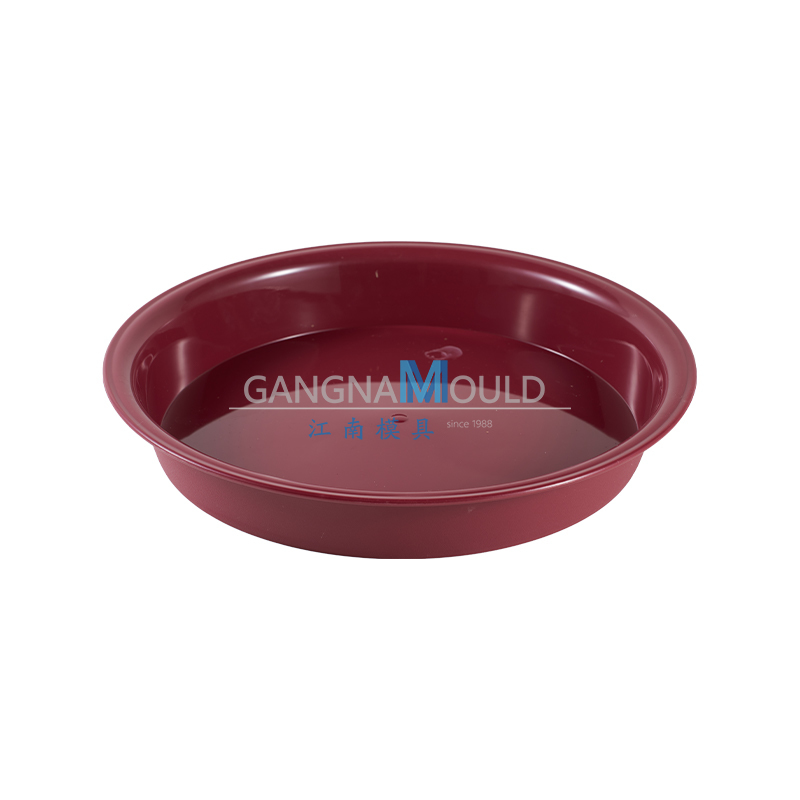
JN-632 Plastic flower pot base mold
Contact Us -
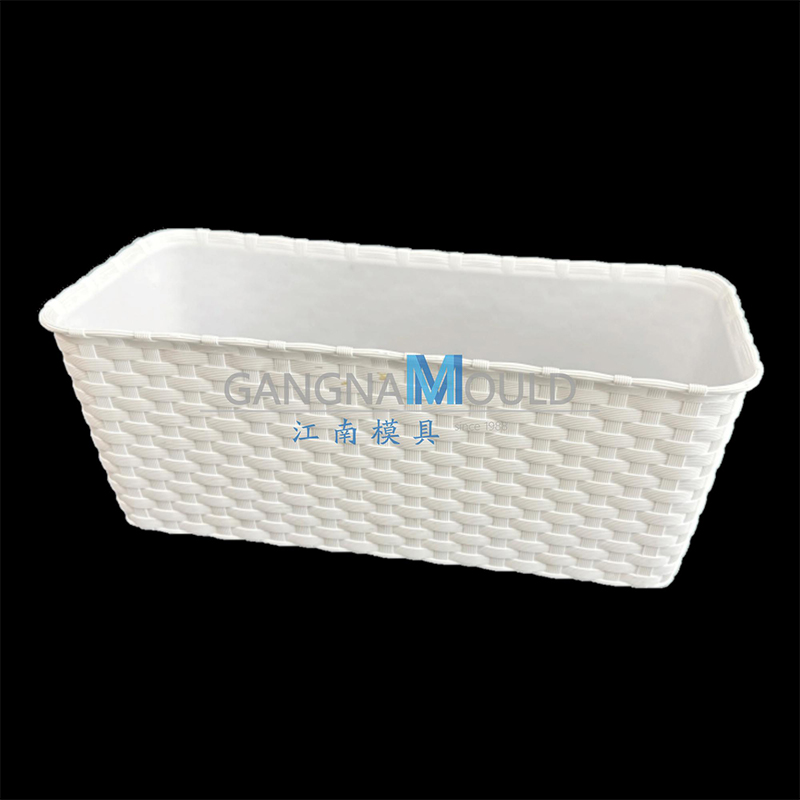
JN-090 White rattan flower pot mold
Contact Us -
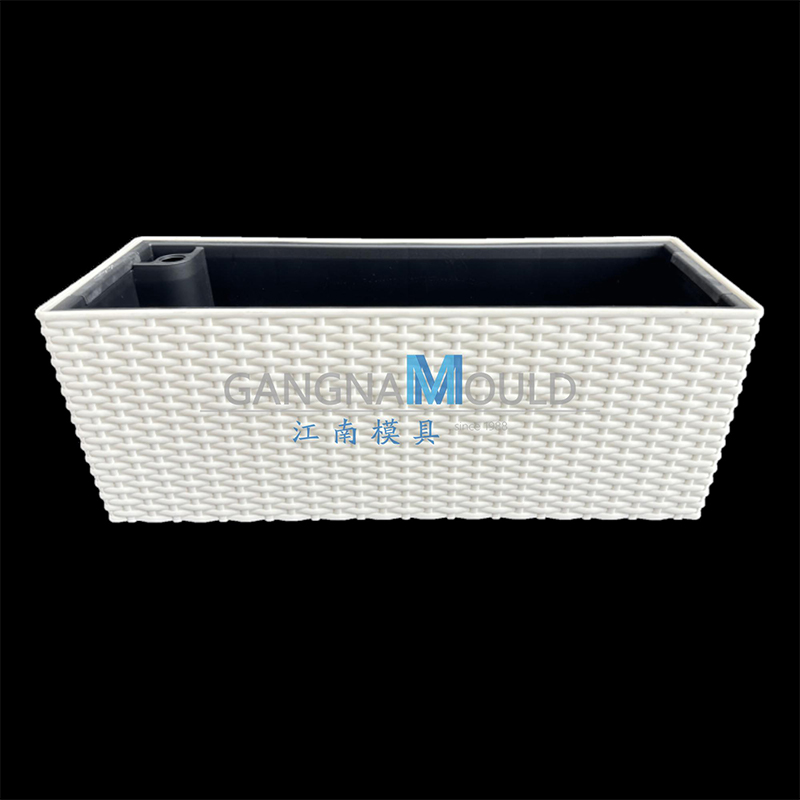
JN-091 White rattan flower pot mold
Contact Us
ABOUT GANGNAM MOULD
At Gangnam Mould, we specialise in the R&D and manufacturing of high-precision moulds. We design and produce plastic moulds for a variety of everyday items, logistics packaging (such as trays and turnover boxes), household appliances, and hollow blow moulding.
Thanks to our advanced technology and extensive experience, we are able to provide efficient and reliable mould solutions to customers around the world, helping them to improve productivity and market competitiveness.
Gangnam Mould now complies with ISO 9001:2015 QMS and looks forward to building long-lasting business relationships with clients and suppliers worldwide.
- 1000+ successfully executed projects.
- Excellent product quality and thoughtful customer service.

Our 37 years of customization experience has created a Gangnam-Mould brand value.
Our Proven Management System & Our Professional R&D Strength
Committed to ISO 9001 standards and a customer-centric approach, the company has built a comprehensive mold R&D and manufacturing platform, earning the trust of leading clients across industries — a true hidden champion in the field.
-

Certificate
-

Certificate
-

Certificate
News & Blogs
Industry knowledge
Garden planter moulds are precision tools used to manufacture durable plastic planters for gardens, patios, and indoor use. Constructed from high-quality steel or aluminum, these moulds support injection molding processes to produce consistent shapes, smooth surfaces, and accurate dimensions. They often feature multi-cavity designs for efficient mass production and reduced material waste. Garden planter moulds are engineered for long-term durability, enabling the creation of functional, stackable, and aesthetically appealing planters suitable for various plants and landscaping applications.
High-Precision Garden Plastic Furniture Mold Design
Garden plastic furniture molds are specialized tools used to manufacture outdoor furniture items such as chairs, tables, benches, and loungers. Constructed from high-quality steel or aluminum, these molds are designed to endure repeated production cycles while maintaining precise dimensions, smooth surfaces, and structural integrity.
The manufacturing process typically involves injection molding, where molten plastic is injected into the mold cavity and allowed to cool and solidify into the desired furniture shape. Multi-cavity molds may be employed to produce multiple furniture components simultaneously, increasing production efficiency and reducing material waste. This approach supports cost-effective manufacturing while maintaining consistent product standards.
Garden plastic furniture molds are designed with both functionality and durability in mind. Ergonomic shapes, reinforced support structures, and smooth finishes ensure the resulting furniture is comfortable, stable, and visually appealing. The molds can accommodate a variety of plastic materials, including polypropylene and polyethylene, providing flexibility for different design requirements.
Proper maintenance of garden furniture molds is essential. Regular cleaning, inspection, and lubrication prevent wear and extend the mold’s service life, ensuring long-term production reliability. Well-engineered molds also reduce the risk of common molding defects such as warping or uneven surfaces, contributing to the overall quality of the finished products.
In summary, garden plastic furniture molds are critical for producing high-quality, durable, and functional outdoor furniture. They combine precise engineering, material versatility, and efficient manufacturing techniques, enabling manufacturers to deliver reliable and aesthetically pleasing products for gardens, patios, and other outdoor spaces.
Smooth Finish Plant Pots Mould for Consistent Production
Plant pots molds are essential tools used in the production of plastic pots for gardening, landscaping, and indoor plant use. Made from durable steel or aluminum, these molds provide precise dimensions, smooth surfaces, and uniform wall thickness, ensuring each pot meets consistent quality standards. They are designed to withstand repeated production cycles without losing accuracy or structural integrity.
The molding process for plant pots typically involves injection molding, where molten plastic is injected into the mold cavity and cooled to form the final shape. Multi-cavity molds can be used to produce multiple pots at once, improving manufacturing efficiency and small material waste. Plant pot molds can accommodate different types of plastics, such as polypropylene and polyethylene, allowing versatility in product size, shape, and design.
Plant pot molds are engineered with functionality in mind. Features such as drainage holes, reinforced rims, and stackable designs improve usability, durability, and storage convenience. Smooth surface finishes ensure easy cleaning and an attractive appearance.
In summary, plant pot molds are vital for producing high-quality, durable, and functional plastic pots. They combine engineering precision, material flexibility, and efficient production capabilities, supporting manufacturers in creating consistent products suitable for a wide range of gardening and landscaping applications.



 English
English русский
русский Español
Español Français
Français عربى
عربى 简体中文
简体中文


